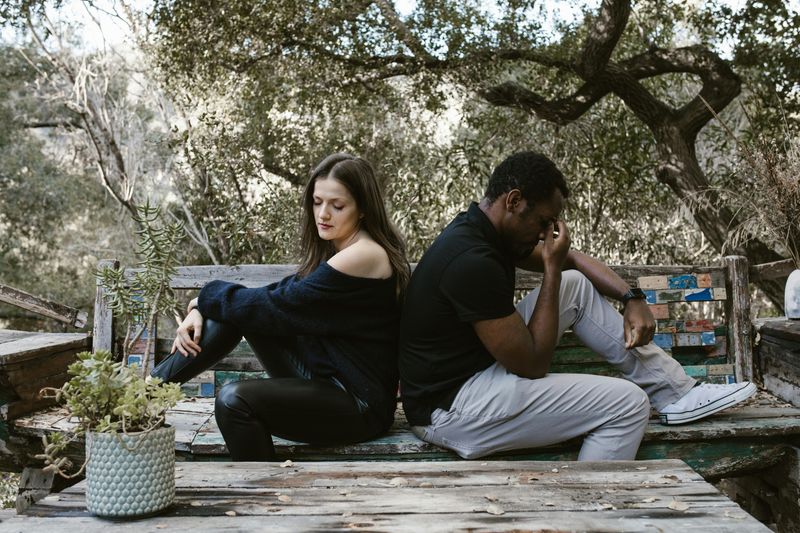10 Behaviors People Show When They Don’t Truly Like Themselves

Self-love isn’t just about feeling good all the time. It’s about treating yourself with respect and kindness, even when things get tough. When someone struggles to like themselves, it shows up in their everyday actions and choices. Recognizing these behaviors can help you understand yourself better or support someone you care about.
1. Constantly Seeking Approval from Others

Needing others to tell you you’re doing okay becomes exhausting. Some people check their phones constantly, waiting for likes or comments to feel worthy. They change their opinions based on who’s around because they don’t trust their own judgment.
This behavior creates a cycle where happiness depends entirely on other people’s reactions. What others think becomes more important than personal values or beliefs. The fear of rejection controls every decision.
Building confidence means learning to validate yourself first. Your worth doesn’t increase or decrease based on someone else’s opinion. Trusting your own voice takes practice but brings real freedom.
2. Apologizing for Everything

They find themselves saying “sorry” more than anything else, often without cause. Whether for speaking, existing, or just being present, they apologize. This habit exposes a hidden belief that they are perpetually in the way or a burden to others.
Over-apologizing makes people feel smaller with each word. It sends a message that their presence is a burden rather than a gift. Friends and family might not even notice how often these apologies happen.
Breaking this pattern starts with catching yourself mid-apology. Ask whether you actually did something wrong or if you’re just existing. Save apologies for real mistakes, not for being human.
3. Avoiding Mirrors and Photographs

Instead of simple reflections, mirrors feel like enemies. Some people go so far as to rearrange their homes just to avoid catching a glimpse of themselves, while others avoid being photographed at big events. They lose out on memories because they dislike how they look.
This avoidance runs deeper than just disliking a bad hair day. It represents a fundamental rejection of their physical self. Every avoided glance reinforces the negative story they tell themselves.
Healing starts small, maybe just looking once without criticism. Your reflection deserves kindness, not harsh judgment. Bodies change throughout life, but they deserve respect at every stage.
4. Staying in Unhealthy Relationships

Accepting poor treatment feels normal when you don’t value yourself. People stay with friends who insult them or partners who ignore their needs. They convince themselves that this is all they deserve or that nobody else would want them anyway.
This behavior stems from believing that being alone would be worse than being mistreated. The fear of loneliness outweighs the pain of disrespect. Each day in these situations chips away at self-worth even more.
Recognizing your value means setting boundaries and walking away when necessary. Being alone is actually better than being with someone who makes you feel worthless. You deserve relationships that lift you up.
5. Perfectionism That Paralyzes

Nothing ever feels good enough, so projects never get finished. They rewrite emails ten times, redo work constantly, or avoid starting altogether. The fear of making mistakes becomes bigger than the desire to accomplish anything.
Perfectionism isn’t about having high standards. It’s about using impossibly high bars as an excuse to never put yourself out there. If you never finish or share your work, nobody can criticize it.
Progress matters more than perfection in real life. Mistakes teach valuable lessons that flawless execution never could. Giving yourself permission to be imperfect opens doors that perfectionism keeps locked.
6. Negative Self-Talk That Never Stops

An inner voice provides constant criticism about every action and thought. They call themselves stupid, ugly, or worthless throughout the day. This mental commentary would be considered bullying if it came from another person, but somehow it feels acceptable when it’s self-directed.
Words have power, especially the ones we tell ourselves repeatedly. This negative soundtrack shapes how someone sees the world and their place in it. The brain starts believing these harsh statements as facts.
Changing this voice takes conscious effort and time. Notice when the criticism starts and challenge its accuracy. Speak to yourself like you’d speak to a good friend.
7. Dismissing Compliments Immediately

Someone says something nice, and they instantly argue against it or deflect. Compliments bounce off like they’re wearing armor designed to block anything positive. They might laugh it off, change the subject, or explain why the compliment is wrong.
This automatic rejection happens because accepting praise feels uncomfortable or dishonest. Deep down, they don’t believe they deserve kind words. Letting a compliment in would contradict the negative beliefs they hold about themselves.
Try just saying thank you next time without adding explanations. Let yourself feel the warmth of someone’s kind words. Accepting compliments gracefully is a skill worth developing.
8. Comparing Themselves to Everyone

Social media becomes a torture device showing everyone else’s highlight reel. They measure their worth against friends, strangers, and celebrities constantly. Someone always seems smarter, prettier, more successful, or happier, which confirms their belief that they don’t measure up.
Comparison steals joy from every achievement because there’s always someone doing better. This habit ignores the fact that everyone struggles privately while sharing only their best moments publicly. The comparison game has no winners.
Your journey is uniquely yours and can’t be measured against anyone else’s path. Focus on your own growth instead of someone else’s chapter twenty. Celebrate others without diminishing yourself.
9. Sacrificing Their Own Needs Constantly

Everyone else’s needs always come first, no matter the personal cost. They skip meals to help others, cancel their plans without hesitation, and never ask for anything in return. Being needed feels like the only way to have value or earn love.
This endless giving leads to burnout and resentment over time. People-pleasing becomes a way to avoid rejection, but it creates relationships built on what you do rather than who you are. Your needs matter just as much as anyone else’s.
Saying no is a complete sentence that doesn’t require elaborate explanations. Taking care of yourself isn’t selfish; it’s necessary. Healthy relationships involve mutual care and respect.
10. Avoiding New Opportunities and Challenges

Opportunities for growth get turned down because failure feels too risky. They stick to what’s familiar and comfortable, even when it makes them unhappy. New experiences might reveal inadequacies they’re not ready to face, so staying small feels safer.
This avoidance creates a shrinking world where nothing changes or improves. Each declined opportunity reinforces the belief that they’re not capable of more. Fear runs the show instead of curiosity or ambition.
Growth happens outside comfort zones, where uncertainty and possibility live together. Trying something new doesn’t require guaranteed success. Courage means taking action despite the fear, not waiting until fear disappears completely.

Comments
Loading…